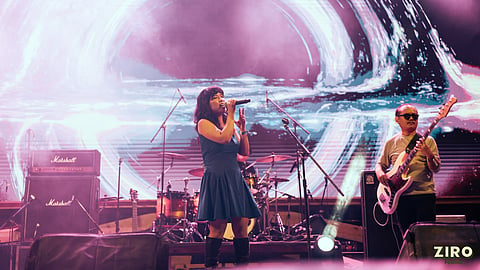Ziro Music festival 2024 | Echoes in the Pines
One morning in Delhi, buried beneath deadlines and screen glare, a notification buzzed: “Ziro Festival of Music 2024 – Sept 26–29.” A photo of tents beneath pine trees, and a caption that read: India’s most soulful outdoor music festival returns to the valley. That was enough. My friends Meera, Arjun, and I had spoken about Ziro in passing for years. This time, we committed. Flight tickets were booked from Delhi to Guwahati. Permits were arranged. And for the first time, we’d be driving ourselves from Guwahati to Ziro—a self-drive SUV adding to the sense of freedom that lay ahead. We landed in Guwahati on the morning of September 25, grabbed a sturdy Scorpio from a rental agency, and stocked up on essentials—energy bars, water, wet wipes, and that one speaker we never used. The route took us through the Brahmaputra plains and into the folds of Arunachal Pradesh. We crossed tea estates near North Lakhimpur, dodged potholes near Kimin, and paused for ILP checks, where officers smiled knowingly at our Delhi plates. “Heading to Ziro?” they asked. Everyone was. The climb into Ziro Valley was surreal. Pines grew denser, the air thinner and cooler. We reached Hari village by late evening, tired but buzzing. Tents were pitched across fields, bonfires crackled, and musicians tuned their instruments under fading sunlight.
The 11th edition of the Ziro Festival of Music, already touted as India’s greatest outdoor indie music celebration, was bigger than ever this year. Over 12,000 attendees had gathered. The numbers alone impressed—49 bands, 225 artists, including 8 international acts, and importantly, 17% representing the eight Northeastern states. As we stood at the entrance on Day 1, collecting our festival wristbands and bamboo mugs, the vibe was unmistakable—raw, welcoming, intensely creative. Daytimes belonged to the Donyi Stage, nestled amidst pine shadows. One of the earliest sets we caught was Hanita Bhambri, whose intimate voice drew in an early crowd like morning mist. Teesta Troupers from Kalimpong followed, their earthy, flute-rich folk blending nostalgia and fire. Kerala’s Gowwli stunned with experimental Carnatic textures, and Saniya MQ from Mumbai brought the beat with razor-sharp rhymes. Then came Ballimaaraan—Piyush Mishra’s poetic powerhouse. His baritone, his wit, and his unpredictability held the crowd in rapture. It wasn’t just music—it was theatre. When he sang of cities and lost love, we forgot the chill creeping up from the grass.
The Polo Stage, which lit up each evening, delivered an unforgettable lineup. Parikrama, the old rock warhorses, reminded us why they’re still revered. Carolina Norbu, Arunachal’s own, sang of mountains, mothers, and memory. Benjamin Sum brought Mizoram’s indie sensibilities to the fore, and Murder in Space delivered a thunderous instrumental set that left us speechless. Then came Kailasa—Kailash Kher’s voice cutting through the valley like a hymn. From “Teri Deewani” to fusion pieces with Naga percussion, it was nothing short of spiritual. Parvaaz, another standout, closed one evening with their immersive soundscape—equal parts poetic and psychedelic. Between the cold, the fog, and the rhythm, we were held in suspension.
One of the highlights of this edition was the return of the Takar Stage for electronic music—this time at a “secret location” revealed via QR codes and whispers. Hidden near a gurgling stream and surrounded by wild bamboo, it was everything a secret stage should be. Sets by Jay Pei, Hamza Rahimtula + Rajasthan Folkstars, Spryk, Alboe, Flux Vortex, and the Indonesian duo Bottlesmoker transformed the night into a trancey, tribal rave. There were no flashy lights, just carefully layered beats pulsing under stars. We danced, not wildly, but instinctively—grounded in the grass, loose in our bones.
Ziro 2024 wasn’t just a music festival—it was a cultural immersion. We spent hours at the Popi Sarmin Creative Space, where movement artists led dance therapy sessions, zentangle classes taught focus through art, and bead jewelry makers invited us to string stories into necklaces. I joined a workshop on elu flute-making—a traditional Apatani instrument carved from paddy straw. I failed gloriously, but the Apatani woman guiding me laughed, “The sound is in the breath, not the flute.” That line stayed with me longer than some songs. And then, there was the Ziro Literary Festival (ZLF)—held before the music began, but still resonating throughout. Students from Saint Claret College mingled with writers, poets, bureaucrats, and filmmakers like Aditi Banerjee. There were free workshops on storytelling, poetry readings by Siddhartha Menon, and impromptu discussions about identity and art beneath trees. For a valley known for music, its silence too was deeply articulate.
The last day hit differently. We found ourselves soaking up every set—Tamikrest from Mali playing desert blues in Tamashek, Dobom Doji Collective representing Arunachal’s voice with pride, and Fakira, reviving Bengal’s forgotten folk like musical archaeologists. Their melodies weren’t just sounds—they were cultural restoration. As the sun set on September 29, and the final act faded, people clapped—but with a heavy heart. Quietly. In gratitude.
The drive back to Guwahati was silent. We weren’t tired—we were full. Every pothole, every playlist on the return journey, felt like a memory in motion. Back in Delhi, among the buzz and pollution, we sat in a café, still wearing our Ziro wristbands like a badge. “Let’s go again next year,” Arjun said. “This time, we stay the whole week.” It was music, yes—but it was also quiet mornings with strangers, paddy-straw flutes, slow-cooked pork, community yoga, open conversations, rain-soaked shoes, and dance floors of pine needles. It was the idea that art—whether song, sound, or silence—could change you.
And it did.
.png)


